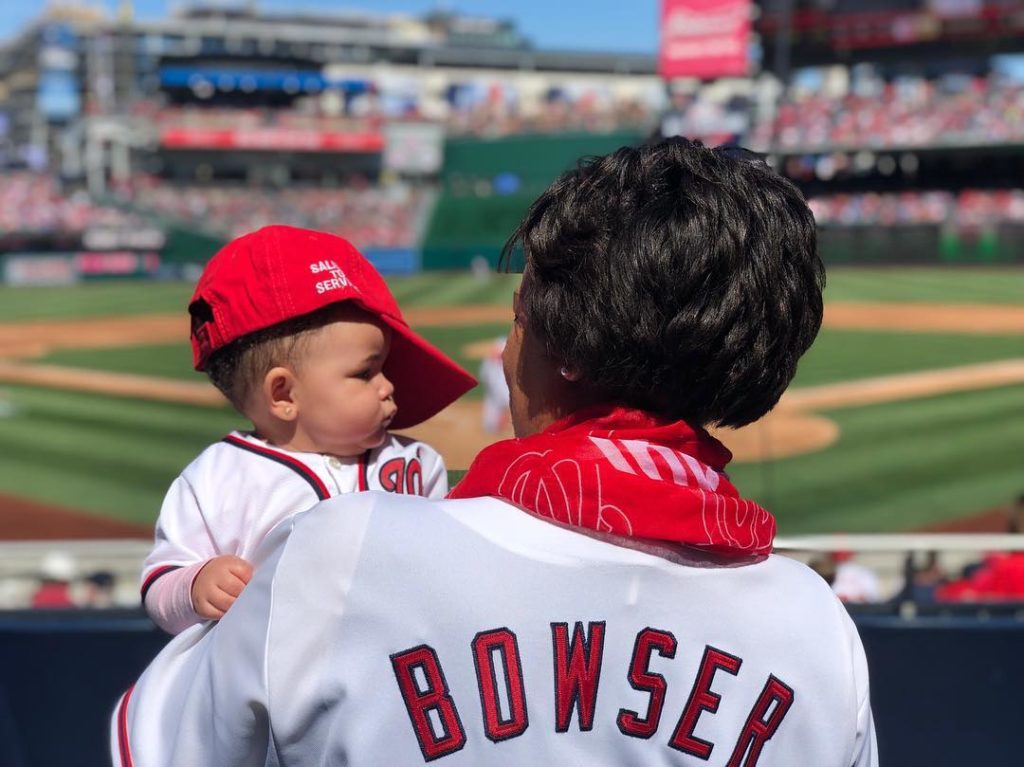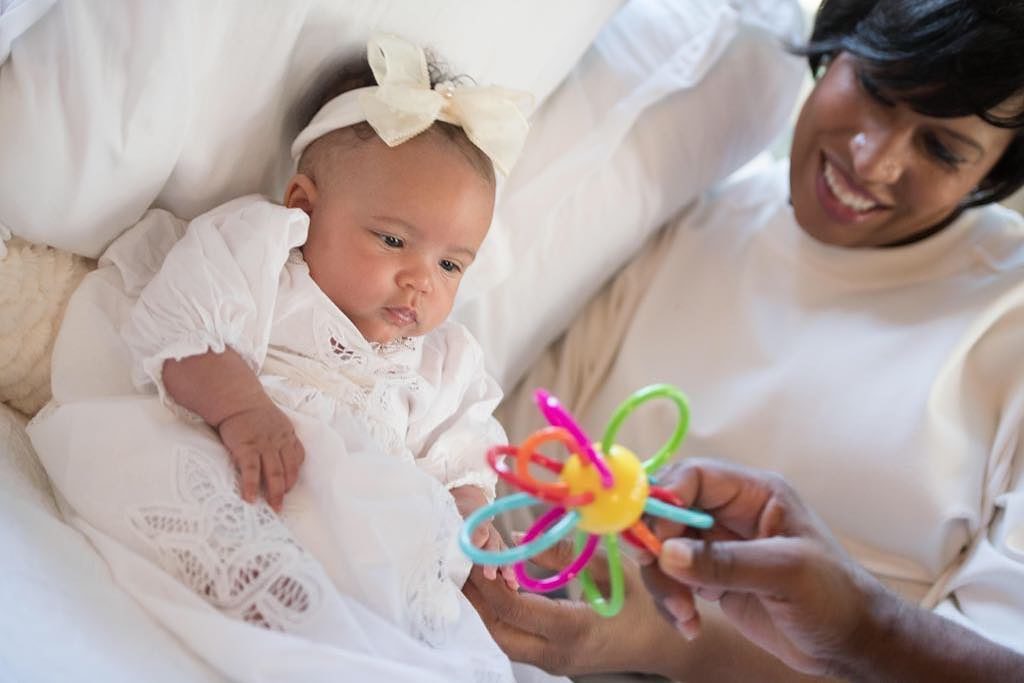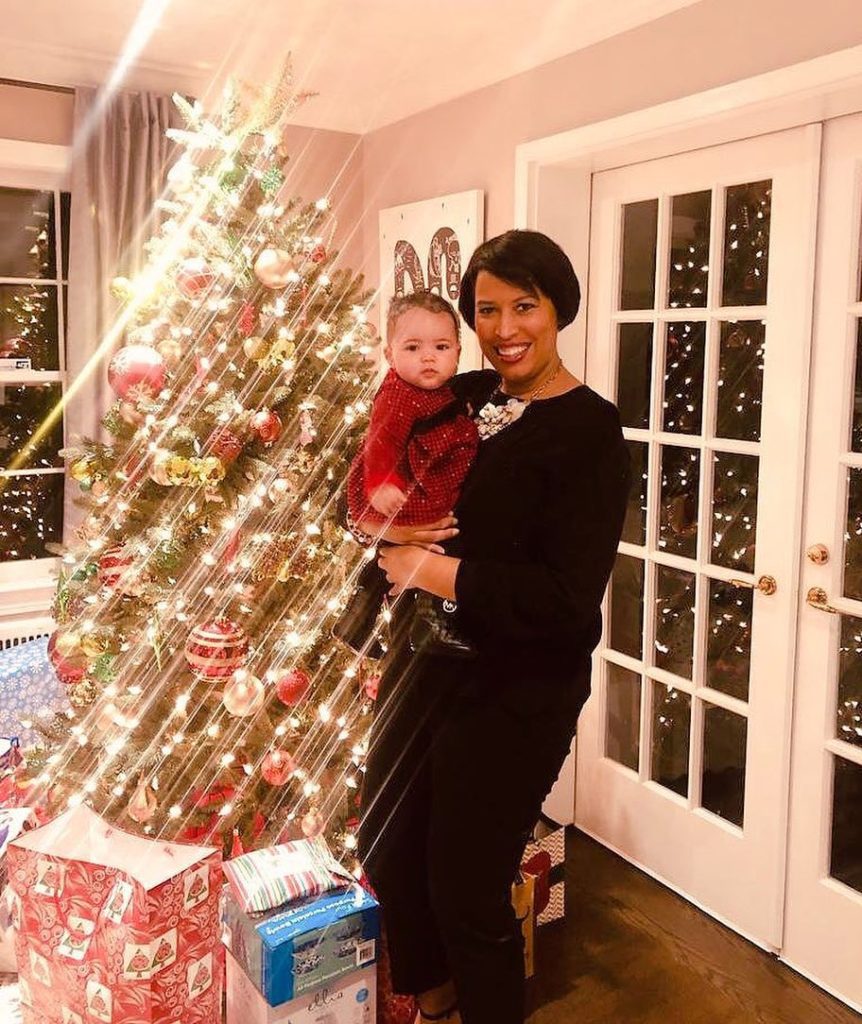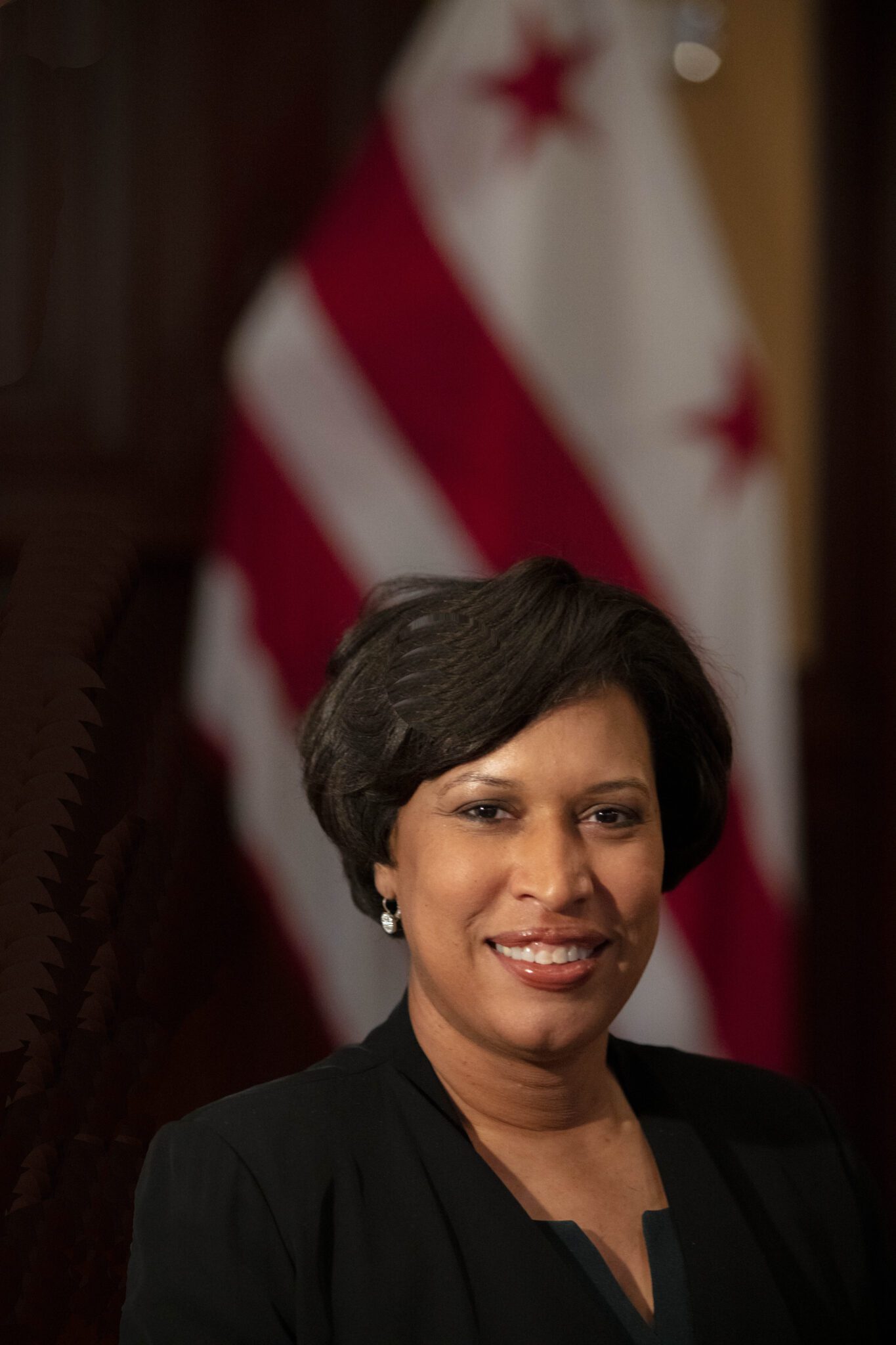Hanging out at the Wilson Building on Pennsylvania Avenue, waiting to chat with Mayor Muriel Bowser, it’s hard not to think about where you are.
It’s the year-round Washington where you live.
It’s a historic place: the seat of government for the District of Columbia.
It’s where the city does its business, where local politics and local political history are the focus of attention (though the shadows of the other Washington surround them).
You can find gathered together here pictures of the previous Council members, some of whom were elected mayor themselves, many of whom ran for the office and almost all of whom at some point at least imagined themselves taking the oath of office.
It’s a good place to think a little bit about the almost meteoric rise of Muriel Bowser to the place she now occupies as the mayor of Washington, in the first year of her second term.
Bowser was the first woman to win a second mayoral term, and only the third candidate among seven mayors to do so. Marion Barry, sometimes characterized by himself and others as “Mayor for Life,” and Anthony Williams also were reelected.
Her rise has a certain political symmetry. A former Ward 4 advisory neighborhood commissioner, Bowser became the Ward 4 Council member in 2007 after winning a special selection in which she was supported by her mentor Adrian Fenty — who had won a major election victory and become mayor.
She was elected again in 2008 and 2012. Fenty lost his bid for reelection to Council Chairman Vincent Gray, who almost immediately became embroiled in a nagging electoral scandal which dogged him throughout his term.
At that point, Bowser, quiet and steady, who had served on the Council as chair of the Committee on Economic Development — where she pushed for more affordable housing, ethics reform and transparency in government contracting — decided to take the next step.
She had plenty of company in deciding to run for mayor, including Gray (running for reelection), Ward 2 Council member Jack Evans, Ward 6 Council member Vincent Orange and the popular and populist Andy Shallal, owner of the Busboys and Poets bookstore-restaurants. All were vying in the Democratic primary. Bowser won that and then the general election.
By this time, you could see a theme developing in her public and political life. She was sometimes seen as reserved and cautious, and could be that way with the media, but she also studied and learned how policy was made — as a politician, as a Council member and finally as mayor.
Watching her, you could see her growth in terms of self-assurance and confidence, her grasp of issues, an energy in her campaign style and a certain toughness, too, when she pushed for limited debates.
She also got her public footing on the campaign trail, and in her public forays as mayor. It seems sometimes that she’s everywhere: housing openings, schools, crime scenes, the launch of new programs. You get her forward-looking outlook in interviews, in State of the District and inaugural speeches and when she addresses groups, whether businesspeople or schoolkids.
Sometimes, the speeches are very disciplined. Other times, they’re unfettered, not in an irresponsible sort of way, but in a personal, celebratory style.
When she came for our talk with her, during the course of a day that appeared tightly scheduled, she wore a black outfit in a style that was both classy and dignified.
Muriel Bowser, as she had done before, had grown into the job. She wasn’t just Mayor Muriel Bowser. She was the mayor. Period.
We sat in a large room, her back to a wall that featured a large portrait of Frederick Douglass, serving as an echo of how she felt about the city.
“This is a historic city,” she said. “And the history is our history. We’re a city of neighborhoods, individual but also as a whole. We shouldn’t forget our past. We should celebrate our culture directly, through the arts, in schools.”
The city — like Bowser herself — is undergoing a transition, and a great deal of success. It’s a moment in time that is full of change: prosperity in general, but not always so much for everybody.
“We need to create an economic environment where everybody profits and takes part, not just a few. People — especially firemen, school teachers, the police — should be able to afford to live here.
“I’m proud of our accomplishments, but we have a lot to do, especially in areas of crime. There’s too much violence, too many deaths. We need to do better in some things in terms of housing, in terms of safety.” She has offered some solutions: more community policing, better and more body cameras, more neighborhood revitalization.
In her campaigns, and her constant presence throughout the city, she’s learned a lot. “I’ve gotten to people closely, face to face, in person all over the city, and that’s when you get an idea that you’re doing a good job. I think people who want to stay here ought to be able to afford to live here.”
When you see her in public — at those State of the District and inaugural speeches, for instance, but also in casual settings — you get a good sense of what she meant when she once described herself (pretty accurately): “I have an extrovert-introvert personality.”
She stood tall during the recent government shutdown and urged the president to end it.
She remembered the rough start of her first term, which included a snowstorm and a deadly situation on Metro.
There have been changes in the government itself. There is a new police chief and a new public schools chancellor (after a misfire on the previous choice). Some political moves vis-a-vis the Council have not always worked.
She’s made solid proposals for everyone to essentially have an equity in the city’s prosperity, to map out the road to the middle class. In her State of the District address of 2009, she talked about the fact that “affordable housing isn’t just a problem for our most vulnerable residents. It affects our entire community. What we’re talking about is how we share that prosperity.”
Details of policy matter, of course, but often the delivery, the posture, the way you present yourself and your ideas matter just as much.

Miranda’s in charge, basically of how you go, when you go, when she wants to eat. Luckily, she is a sweetheart. She has a very pleasant temperament, but you fully realize you can’t control everything. Instagram @murielbowser.
Every time we’ve had occasion to engage with the mayor, she seems to sound and be stronger — maybe even taller — than before, always walking into the future.
She’s got a better reason for that confidence now. The mayor has added another title after her name: Mom.
“A little girl,” she said. “She’s perfect. It‘s exciting, and you have to do so many things. She’s an exciting, and challenging, little girl. She adds a whole new dimension to your life.“
Last year, around this time, Bowser announced that she had adopted a child. Miranda Elizabeth Bowser was baptized on Sept. 9 at St. Anthony of Padua Catholic Church in Northeast D.C. She was adopted in May of last year.
“It’s an awesome responsibility, raising a child. She just loves people,“ said Mayor Mom.
Sometimes, these days, when you hear her talk about public policy, about overseeing a force of thousands of employees in the city government, and then also talk about choosing her daughter’s clothes for any given day, the stories sound the same. The experience weaves into issues that are suddenly personal, like traffic, preschool, safety and so on.
One little girl, a mother, a city, the rest of us, a new dimension in the life of … the mayor.

I want every girl to know that they can be anything they want to be. I tell Miranda that all the time. Take a moment today to remind the girls in your life that they can too. #DayoftheGirl Instagram @murielbowser.

Merry Christmas, DC. May this holiday season bring peace and joy to you and your family. Miranda and I wish you all the best in 2019! Instagram @murielbowser.


